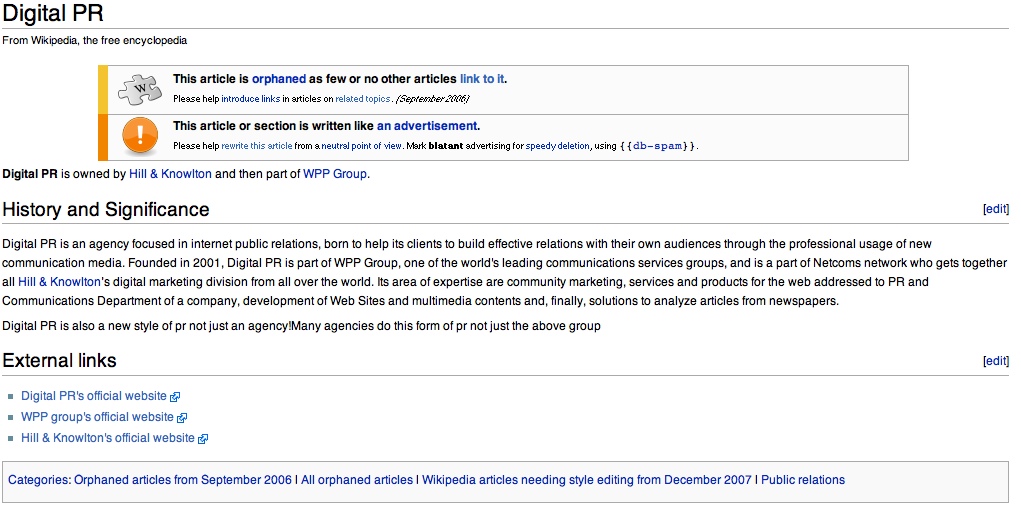I’ve just come across a recent survey from Bigmouthmedia that claims that 79 out of the 100 top UK PR companies don’t offer online PR services.
They also say that only 14% of the operations that claimed to have new media covered published their own blogs. And that taken as a whole, only 11% of UK PR Consultancies use blogs to communicate with clients, colleagues and the wider marketplace.
I have to say I found these figures overly low. On the basis of the above analysis, there are only 11 agencies out of the top 100 that have a blog. Surely not.
Then again, I remain curious about the terms online PR, digital PR, etc. Most people I talk to seem to think there is no real semantic difference between them – they are simply different ways of describing the same thing.
However, in terms of their relative search popularity, there clearly are differences. Here are the figures for October 2008 in the UK:
Online PR 2,900
Online public relations 1,600
Web PR 880
Digital PR 590
Internet PR 260
Internet Public Relations 170
Digital public relations 73
Taking Google’s Insight for Search Tool, you can see that interest in the term “online PR” for example was at its highest back at the beginning of March 2008 – and has been bouncing around below this figure ever since. Google Insight also shows the regional breakdown for the term – and it would seem no one outside of London searches for “online PR”.
So what are the implications of all this for the UK online PR market?
This suggests that although interest is growing, it still remains a niche. For example, the term “fashion PR” was searched for 6,600 times last month. Indeed, the term social media scored 9,900 (though its variants such as social media PR, social media marketing, etc hardly registered).
Adam Parker, Chief Executive of online news distribution company webitpr commented on the Bigmouthmedia survey saying: “Despite finding that an increasing number of UK PR professionals are on the ball when it comes to online PR, this survey confirms our experience that a high proportion are still more focussed on traditional media. However, given that this is most probably a reflection of client budget and resource allocations, perhaps what we should be asking ourselves is what this says about UK business’ attitude towards online communications.”
Indeed. Though I’d argue that there is a difference between being aware of the need for online PR and being “on the ball”. Based on the above, it seems that interest in online PR (or whatever term you prefer) is largely confined both client and agency side to a hard core bunch of London-based converts. That surely has to change.
As Adam Parker added: “On a positive note, we feel that with steadily growing interest in the online world from both agencies and in house departments, the tide is beginning to turn. But if it is to properly address the challenges and opportunities that new media offers, the industry must invest in relevant services and training at all levels. Those failing to do so run the long-term risk of losing out in the inevitable battle for the online communications market.”
That I think nails it on the head. Agencies understandably are reluctant to offer services their clients aren’t going to pay for – but unless clients are given the option to actually try or buy a new service, then how can they invest in it? Those agencies that take the risk of developing new online services are clearly going to give themselves a better long term advantage.


